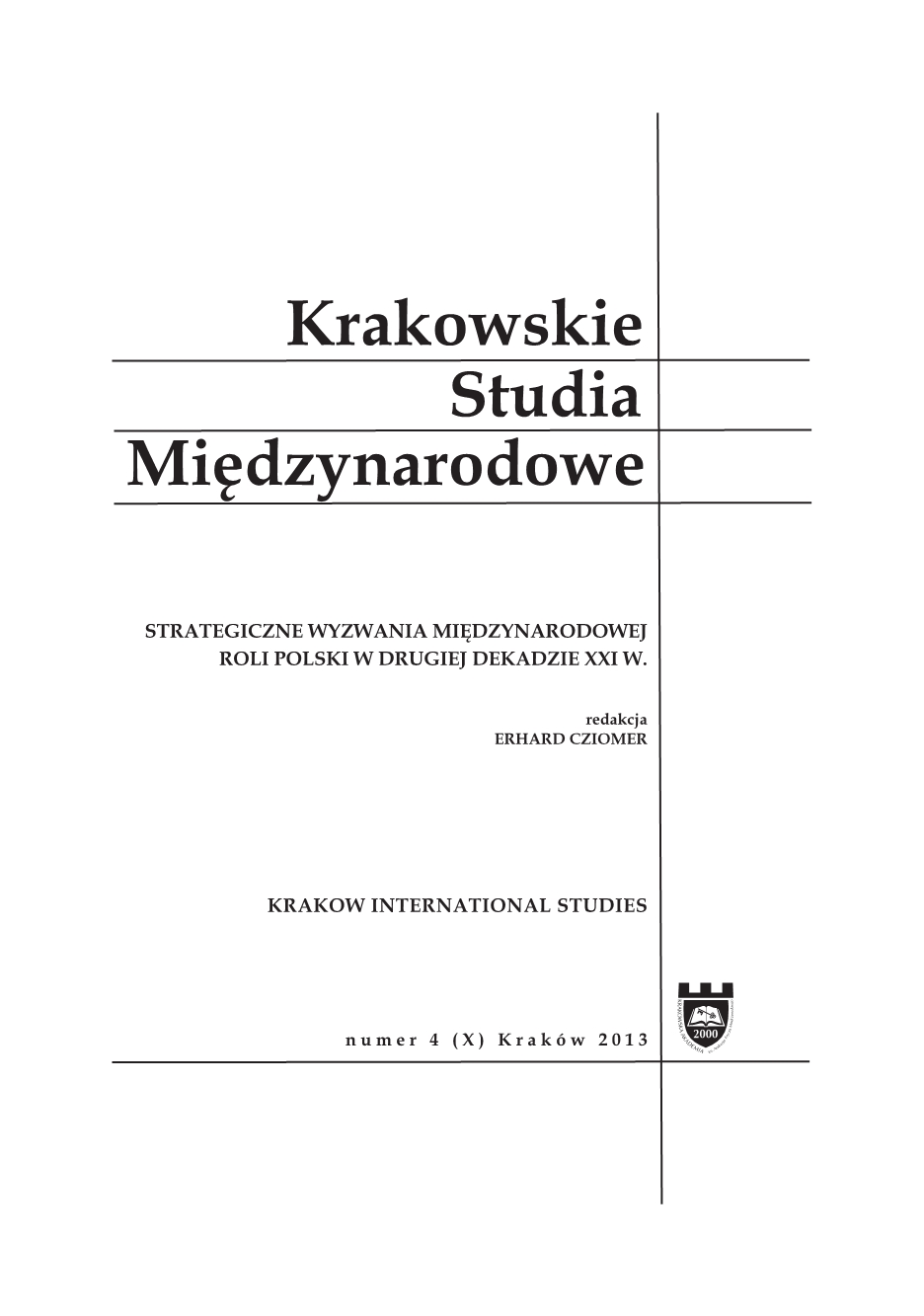Polska wobec polityki energetyczno-klimatycznej UE w drugiej dekadzie XXI w.
Poland on the EU’s climate and energy policy in the second decade of the 21st century
Author(s): Beata MoloSubject(s): Energy and Environmental Studies, Environmental and Energy policy, International relations/trade, Environmental interactions, EU-Legislation
Published by: Oficyna Wydawnicza KA AFM
Keywords: Poland; European Union; energy policy; climate protection policy; greenhouse gases emission; renewable energy sources;
Summary/Abstract: The aim of the article is to synthetically present Poland’s stance towards the challenges regarding the EU’s climate and energy policy in the second decade of the 21st century. In the first part of the article the conditions, main goals and directions of Poland’s energy policy as well as climate protection policy have been discussed. The prognoses of energy and fuel demands concerning the year 2030 have been presented as well. In the second part of the article difficulties and restrictions concerning the necessity of Poland’s adaptation to the EU’s energy and climate package demands has been presented that is restriction in greenhouse gases emissions and in development of renewable energy sources in final energy consumption. The current energy and climate package exerts influence on trends in development of energy sector and puts Poland to the test of technical and socio-economic type. In the third part of the article basic elements of Poland’s stance towards European energy and climate policy involving suggestions of transition to a low emission economy (raising the goal of the EU’s greenhouse gases reduction through 2050 to 20%), increase in share of the renewable energy sources in total EU’s energy consumption going beyond established 20% to 2020 as well as reform concerning European system of emissions trade EU–ETS. Proposals and actions that Poland had yet undertaken within the EU were also discussed in the paper. Controversies as to implementation of the energy and climate package, which indirectly influence Poland’s image as a state blocking activities for climate protection, are not insignificant for the current Poland’s stand on the EU’s energy and climate policy in the medium to long term. The paper ends with conclusions together with recommendations. Undoubtedly, the biggest challenge for Poland is still an integrated approach to energy and environmental protection policies manifesting in transition to a low emission economy parallel to improving energy supply security. For working out Polish negotiating position at the EU’s level that could enhance our role, it is essential to prepare energy strategy in medium and long term that would show both the potential of reduction in greenhouse gases emission, increase in renewable energy sources share and constraint which Poland will have to face.
Journal: Krakowskie Studia Międzynarodowe
- Issue Year: X/2013
- Issue No: 4
- Page Range: 187-206
- Page Count: 20
- Language: Polish

